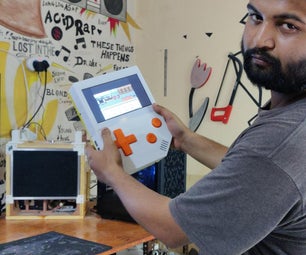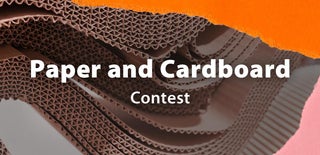Introduction: Beginner's Electronics Kit
In this Instructable, I will show you how to assemble an inventory that should contain everything you need for basic electronics projects including components, tools and technical phrases. I will also suggest projects that I felt helped me further my knowledge and understanding when I started in electronics.
Step 1: Components
There are many types of component that are important when building circuits such as LEDs, capacitors and transistors. All of these components are available at RadioShack or other stores and they are key components for a beginner.
- 555 Timer - A type of IC (Integrated Circuit) used to provide time delays, as an oscillator or a flip-flop element. The 555 timer is cheap and easy to use so is ideal for small projects.
Metronome
555 Timer @ RadioShack
- Batteries - Devices used for storing chemical energy for transformation into the electrical energy that powers the circuit. They feature a positively charged terminal (anode) and a negatively charged terminal (cathode).
- Capacitors - A component used to store energy in an electric field. They come as electrolytic and ceramic variants and in many different sizes. The unit for capacitance is the Farad and capacitors also come rated with voltage.
Sunrise Alarm Clock
Capacitors @ RadioShack
- LEDs - (Light-Emitting Diode) A semiconductor light source. Electrons combine within the LED releasing energy in the form of photons (ie. light)
- Resistors - Implements electrical resistance as a circuit element. These are usually used with LEDs. There are fixed and variable types that can be affected by factors such as temperature and light.
Resistors @ RadioShack
I found this useful when making large LED arrays for determining which resistors I needed:
http://led.linear1.org/led.wiz
- Voltage Regulator - An electrical regulator designed to automatically maintain a constant voltage throughout a circuit. A specific type of transistor.
USB iPhone Charger
5V Voltage Regulator @ RadioShack
- Wire - Metal strands used to carry electrical current.
- Switch - Able to break electrical circuit.
- Transistor - A semiconductor used to amplify and switch electronic signals. They are often found in integrated circuits.
Step 2: Tools
A fully equipped tool kit is definitely necessary for creating electronic projects. A small bag or container is useful in making your kit fully portable, which enables you to use multiple workstations.
- Breadboard/Protoboard - Used for prototyping electronic circuits. They don't require soldering so the board and electronic components can easily be reused.
- Soldering Iron + Accessories - An essential tool in constructing circuits. The hot soldering iron melts the solder on the joint between to components to form an electrical joint.
- Zip/Cable Ties - Useful for binding cables into a neat form.
- Heat Shrink - Provides support and insulation for wiring.
- Sugru - Silicone based putty that sticks to objects for multiple purposes and cures over time.
- Multimeter - Electronic measuring instrument that can measure values such as voltage, current and resistance.
- Work Light - Provides useful light for working on electronics.
- Screwdriver
- Craft Knife - Small, sharp knife. Especially useful for making precise incisions.
- Glue Gun - Strong adhesive that uses a heat element to melt glue onto a given area and melts very quickly once applied.
- Multi-tool - Versatile hand tool with multiple functions.
Step 3: Useful Links
Here are some other sites that will give you more information about basic electronics:
Basic Electronics by randofo
How-to Breadboard by amandaghassaei
If you find it too hard to source or too expensive to buy the individual parts, I would recommend buying a complete project kit which would include everything you need for that particular project as well as assembly instructions.
MakerShed Kits
After learning the basics you can move on to more advanced electronics such as Arduino or Raspberry Pi. Both of these mediums offer easy ways to learn electronics and programming as well as strong communities that are willing to help beginners.
www.Arduino.cc
www.RaspberryPi.org







![Tim's Mechanical Spider Leg [LU9685-20CU]](https://content.instructables.com/FFB/5R4I/LVKZ6G6R/FFB5R4ILVKZ6G6R.png?auto=webp&crop=1.2%3A1&frame=1&width=306)




